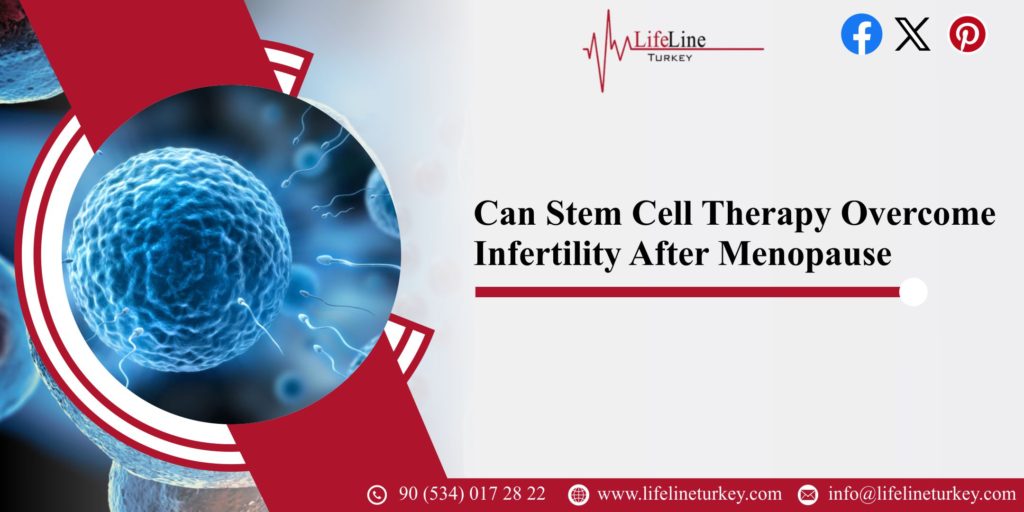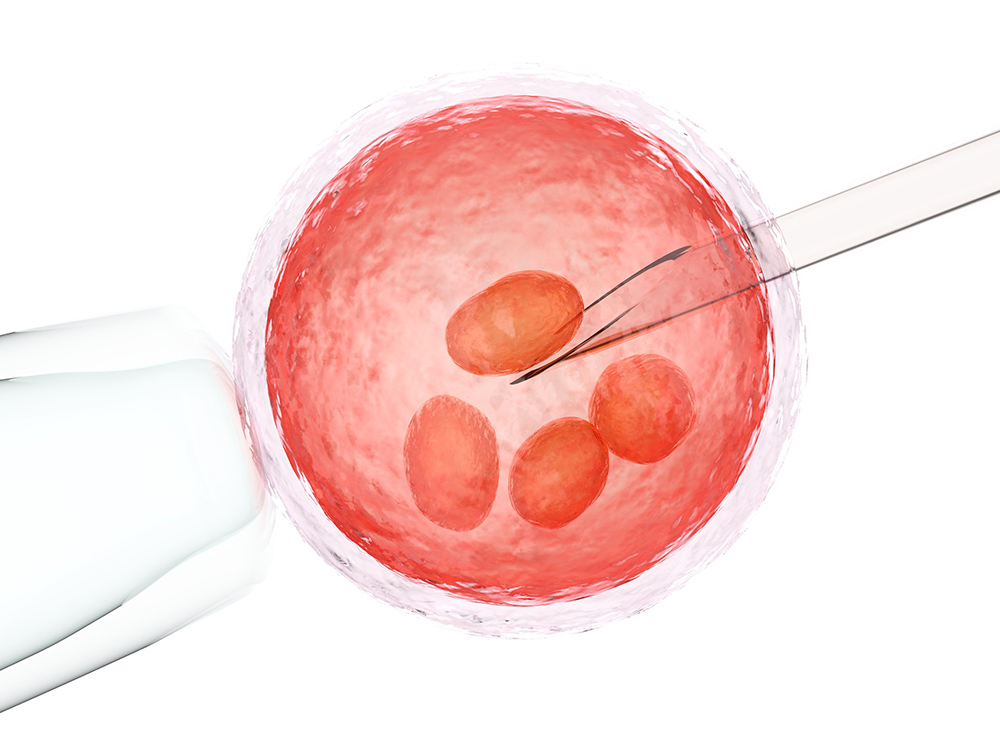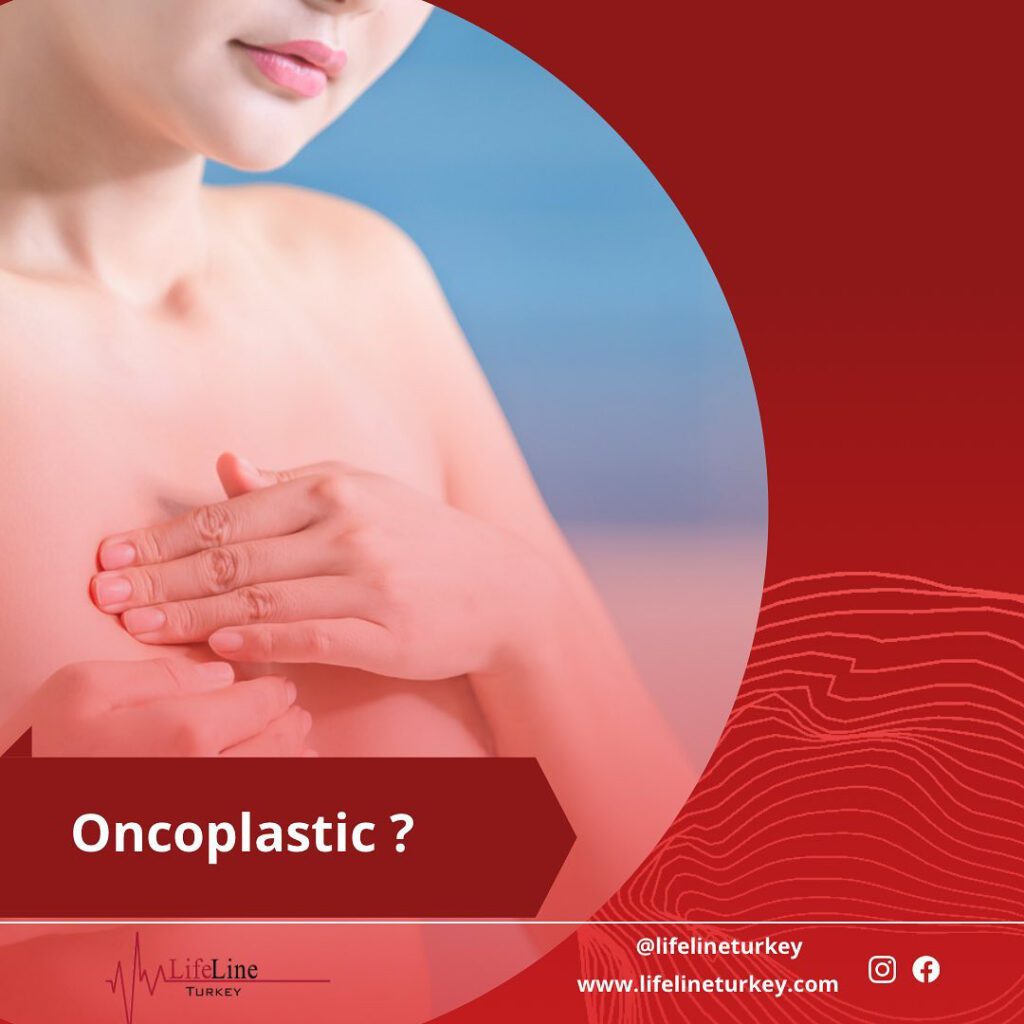The desire to build a family is a powerful one, and for some women, age or medical conditions can make this dream seem out of reach. For women who have reached menopause, the dream of conceiving a child may seem unattainable due to the natural decline in reproductive function. But what if there was a way to overcome this biological barrier? Stem cell therapy for infertility in Turkey has emerged as a potential beacon of hope, offering a glimpse into a future where menopause may not be the end of the road for childbearing.
Understanding Menopause and Infertility
Menopause is a natural biological process marking the end of a woman’s reproductive years. During this transition, the ovaries stop producing eggs, and estrogen levels significantly decline. This hormonal shift brings about physical changes, such as hot flashes, night sweats, and vaginal dryness. More importantly, it renders a woman unable to conceive naturally.
For some women, menopause arrives prematurely due to medical treatments like chemotherapy, radiation, or genetic conditions. It is known as Primary Ovarian Insufficiency (POI). Regardless of the cause, the inability to conceive due to menopause can be a source of deep emotional distress.
Traditional Approaches to Infertility After Menopause
Historically, options for women experiencing infertility after menopause were limited. Assisted reproductive technologies (ART) such as in vitro fertilization (IVF) were widely used, often involving the use of donor eggs. However, these methods have their limitations and may not be suitable for everyone, prompting researchers to explore innovative alternatives.
The Role of Stem Cell Therapy
Stem cells are undifferentiated cells with the remarkable ability to develop into various cell types in the body. This characteristic makes them invaluable in regenerative medicine, and scientists are now exploring their potential for addressing reproductive issues. In the context of infertility after menopause, stem cell therapy in Turkey aims to rejuvenate or replace damaged or depleted ovarian tissue, potentially restoring fertility.
The Promise of Stem Cells
As mentioned, stem cells are the body’s master cells, holding the remarkable ability to self-renew and differentiate into specialized cell types. In the context of infertility, the hope lies in the potential of stem cells to regenerate ovarian tissue or even create new eggs.
There are two main types of stem cells being explored for this purpose:
- Embryonic stem cells: These cells offer the greatest potential for differentiation derived from early-stage embryos. However, ethical concerns surround their use.
- Adult stem cells: These can be obtained from various sources, such as bone marrow, menstrual blood, or umbilical cord blood. While their differentiation potential is more limited, they carry fewer ethical concerns.
How Stem Cell Therapy Works
Stem cell therapy for infertility involves the isolation of stem cells, either from the patient’s own body or from a donor. These cells are then introduced into the ovaries to stimulate tissue regeneration and enhance ovarian function. The process may involve injecting stem cells directly into the ovaries or utilizing advanced techniques such as tissue engineering to create artificial ovaries capable of supporting egg development.
Challenges and Considerations
Heterogeneity of Stem Cells:
Stem cells exhibit heterogeneity, meaning that not all stem cells are the same or possess the same regenerative capabilities. Researchers are working to identify the most suitable type of stem cells for ovarian rejuvenation. The heterogeneity of stem cells introduces complexities in determining the optimal source and characteristics necessary for successful therapy.
Risk of Tumorigenesis:
A major concern with any stem cell therapy is the potential for tumorigenesis or the formation of tumors. Researchers are diligently investigating ways to mitigate this risk, ensuring that the introduction of stem cells does not lead to the unintended development of tumors within the reproductive organs.
Immunological Challenges:
The immune response to introduced stem cells is another factor under scrutiny. To avoid rejection of the stem cells, scientists are exploring immunomodulation techniques that can regulate the body’s immune system, allowing for the successful integration and function of the transplanted cells.
Long-term Efficacy and Safety:
While initial results from clinical trials are promising, the long-term efficacy and safety of stem cell therapy for infertility after menopause are still uncertain. Follow-up studies are essential to track the outcomes over an extended period and assess any potential side effects or complications that may arise over time.
Future Prospects
Personalized Medicine:
Advancements in stem cell research are paving the way for personalized medicine approaches. Tailoring stem cell therapy to an individual’s specific needs and characteristics could enhance the success rates of infertility treatments and minimize potential risks.
Combination Therapies:
Researchers are exploring the possibility of combining stem cell therapy with other innovative approaches, such as gene editing and hormonal interventions. This multidisciplinary approach aims to address various aspects of reproductive function and improve the overall effectiveness of treatment.
Expanded Access to Treatment:
As stem cell therapy progresses and becomes more established, there is hope for increased accessibility to these treatments. Lowering costs, refining techniques, and establishing standardized protocols will contribute to making stem cell therapy a viable option for a broader range of individuals seeking fertility solutions after menopause.
Educational and Ethical Advocacy:
With the evolution of stem cell therapy, educational initiatives, and ethical advocacy become increasingly crucial. Ensuring that patients are well-informed about the potential benefits, risks, and ethical considerations of stem cell-based interventions is essential for responsible and transparent medical practice.
Lifeline Turkey – A Ray of Hope for Parents!
Stem cell therapy in Turkey represents a beacon of hope for women facing infertility after menopause. While the research is still in its infancy, the potential to rejuvenate ovarian tissue and restore fertility is an exciting prospect. As scientists continue to unravel the mysteries of stem cells and their applications in reproductive medicine, the dream of parenthood for post-menopausal individuals may become a reality. It is crucial to follow the ongoing research in this field and stay informed about the latest developments that could reshape the landscape of infertility treatment. To know more about the treatment and the cost, contact Lifeline Turkey.



